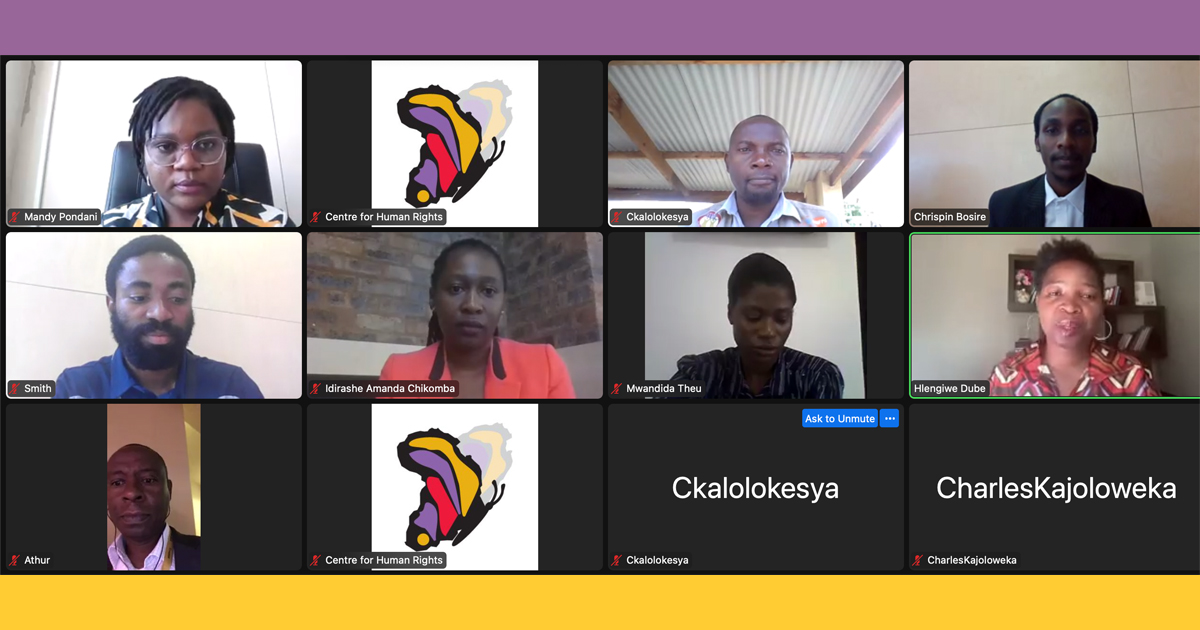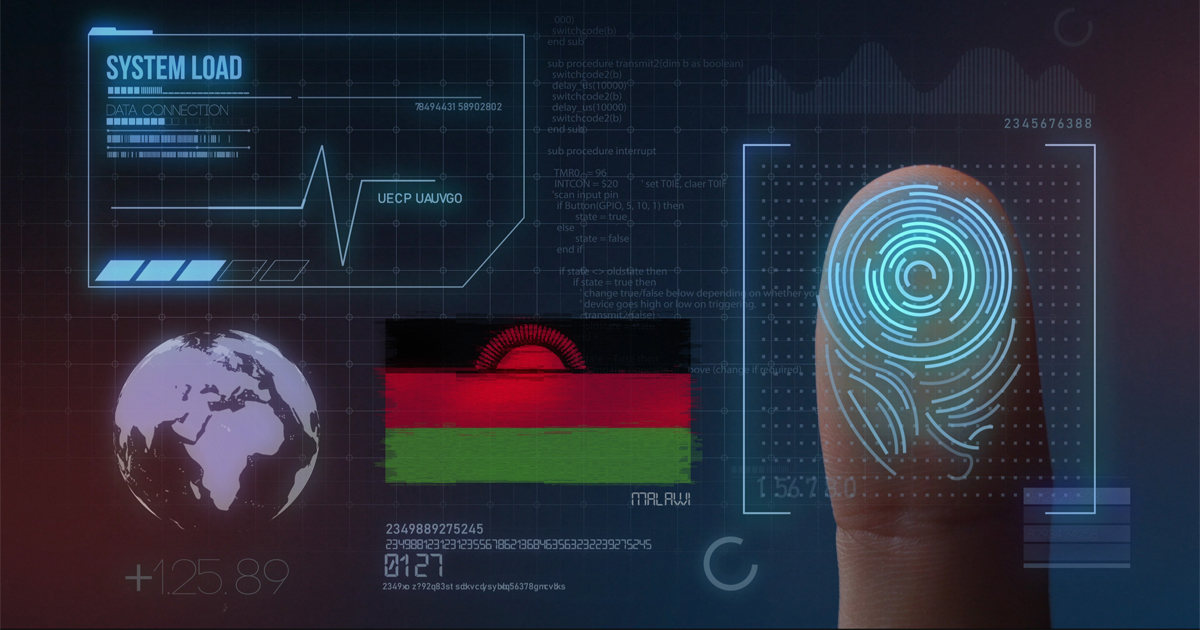On 27 April 2023, the Centre for Human Rights’ Expression, Information and Digital Rights Unit (EIDR) in collaboration with Youth and Society (YAS) of Malawi, hosted a webinar on the status of implementation of the Malawi Access to Information Act. The webinar was moderated by Chrispin Bosire, Smith Naseri Edumebong and Idirashe Amanda Chikomba, from the EIDR clinic. The speakers were drawn from stakeholders in Malawi that are contributing to the implementation of the Act. These are Mandy Pondani (Media Institute of Southern Africa-MISA Malawi), Mwandida Theu (Youth and Society), Chance Kalolokeska (Malawi Human Rights Commission) and Authur Chipenda (Malawi Ministry of Information and Digitisation). The webinar is part of the Centre for Human Rights’ commemoration of 10 Years of the Model Law on Access to Information for Africa that was adopted by the African Commission on Human and Peoples’ Rights in 2013, to provide legislative guidance to member states of the African Charter on Human and Peoples’ on the implementation of article 9 of the African Charter which provides for the right of access to information.
Mr Chipenda from the Ministry of Information and Digitisation discussed the role of the Ministry in the implementation of the Act, including funding, and collaboration with stakeholders. The Malawi Human Rights Commission representative highlighted the role of the Commission in the implementation of the Act. He also discussed the challenges faced by the Commission in its oversight role and the measures being undertaken to address the stated challenges. The intervention also included advocacy strategies in promoting the right of access to information. The Vice Chairperson of MISA Malawi, Mandy Pondani alluded to the initiatives that the organisation has undertaken with the media sector in raising awareness of the Act and also lamented the inadequate funding that undermines MISA’s role in the implementation of the Act. Ms Mwandida Theu indicated that Youth and Society (YAS) is one of the civil society organisations that is actively supporting the implementation of the Act through advocacy and other initiatives. She

The need to proactively disclose information to the public also formed part of the conversation. Concerns that were raised include the slow pace of digitisation of records to ensure accessibility, inclusivity challenges that affect vulnerable and marginalised groups, low levels of awareness of the right of access to information, inadequate funding, capacity constraints. Although Malawi is not cited as one the countries that have implemented internet shutdowns, it was indicated that the rate of internet penetration is still low and this affects access to information by those that are not connected, even if information is proactively disclosed on digital platforms.
The participants noted progress and challenges that have been recorded so far in the implementation of the Act. Some of the contributions during the webinar included the need for translation of the law into accessible languages and ensuring accessibility of information for persons with disabilities. They also noted the importance of the role of information officers in the implementation of the Act and the independence of the Malawi Human Rights Commission in discharging its mandate. They further raised concerns about existing laws that could undermine the disclosure of information to the public and limit access to the Internet, which is an enabler of access to information.
[Watch Webinar]
For more information, please contact:

Tel: +27 (0) 12 420 4199
Fax: +27 (0) 86 580 5743
Hlengiwe.Dube@up.ac.za


